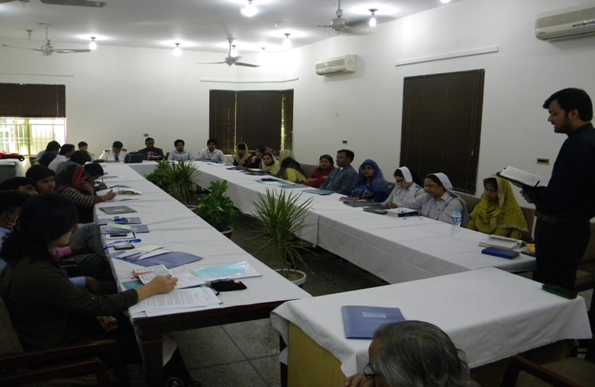CCA Nurtures Grassroots Ecumenism in Pakistan
As part of promoting and nurturing ecumenism at the grassroots in CCA constituencies, an Ecumenical Enablers’ Training was organized by CCA in Lahore from 20 to 22 October 2015.
Thirty three participants from various churches and Christian organisations affiliated to the National Council of Churches in Pakistan (NCCP) attended the training program. The three day training on the theme ‘Living Together in the Household of God: God’s Call for Churches in Asia Today” focused on wider ecumenical issues and themes in emerging Asian and Pakistan contexts.
Rev. Dr. Jayasiri Peiris, Principal of Theological College of Lanka, Sri Lanka, Rev. Isaac Barkat, Church of Pakistan, Dr. Farhana Nazir, Gujranwala Theological Seminary, Miss Romana Bashir and Rev. Grace Moon were the facilitators of the training.
Victor Azariah, the General Secretary of the NCCP, stated that the topics covered in the training helped participants to deepen their biblical and theological understanding on ecumenism; reflect on ecumenical responses to intra-faith, gender justice and ecological issues as well as shared leadership in church and society.
The ecumenical enablers’ training of CCA is developed to train a new generation of ecumenists at the grassroots in a context where many pastors and church leaders do not have adequate access to formal ecumenical theological education and opportunities for ecumenical formation.











